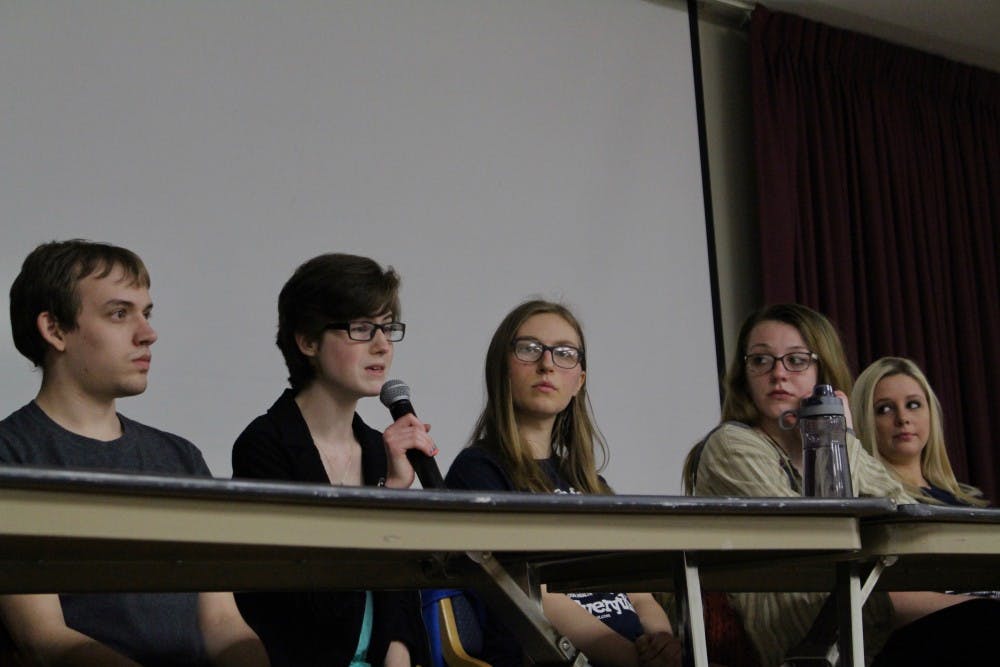Student organizations describe how different social issues are related

More than 30 people attended the Progressive Student Panel to listen to seven representatives from different registered student organizations discuss social injustices.
The Student Advocates for Vegetarianism and Veganism hosted the panel and invited panelists to share their personal thoughts about social issues and discuss how all the issues intersect with each other. Elizabeth Bradshaw, a sociology professor at CMU, moderated the discussion.
RSOs involved included Black Lives Matter, Student Advocates for Vegetarianism and Veganism, Spectrum, North American Indigenous Student Organization, Universities Allied for Essential Medicines, Student Environmental Alliance and Student Advocates for Forced Immigrants.
Remus senior Kyal Lalk, co-president of Spectrum, said the organization promotes tolerance and acceptance of the LGBTQ+ community through education on CMU’s campus. Though the group is rooted in freedom of identity, Lalk stressed the movement relates to all social movements.
“You aren’t just LGBTQ+ --- you’re a queer person of color, you’re a gay vegan, you’re a lesbian who supports the environment,” Lalk said. “Our movement is about rights for everyone and about all the different aspects of your identity and what makes you who you are.”
Several of the panelists discussed how environmental racism is an issue that affects multiple causes.
“Environmental racism refers to socially marginalized minority communities, which are subjected to disproportional exposure of pollutants and the denial of natural resources,” said Bridget Byrne, president of the Student Environmental Alliance.
The Flint water crisis exemplifies environmental racism happening in Michigan, Byrne said.
Byrne cited the Dakota Access Pipeline protests as another prominent example. Since the Standing Rock Sioux tribe’s quality of life is being directly affected, rather than a white community, their woes were neglected.
“Native Americans are hit very disproportionately by environmental racism,” agreed Hunter Sagaskie, president of the American Indian Science and Engineering Society and member of the North American Indigenous Student Organization.
Many Native American tribes do not have access to drinkable water and life-saving medicines, Sagaskie explained. He said the life expectancy for some tribes is only 53 years.
Universities Allied for Essential Medicines is also concerned with providing everyone access to medication, said Danielle Voss, president of the organization.
“(UAEM) believes that it is a basic human right to have access to medicine, regardless of your financial status,” Voss said.
Sarah Merrifield, organizer of the Progressive Panel event and vice president of the vegan and vegetarian student RSO, also related their goals to the other organizations.
She said their mission is inter-sectional because by advocating for animals, they are also addressing food justice, food justice and rights for all.
The Black Lives Matter movement focuses on police brutality, mass incarceration, environmental racism and advocates for the protecting of transgender people, said Jazmyn Williams, president of the CMU chapter.
“It is nice to have a dynamic approach to social justice,” said Southgate senior Hailey Zacharski, an attendee at the event, said she liked the dynamic approach to social justice.
“These ideas travel through word of mouth,” Zacharski said. “If I go home and tell my friends about what I learned, it causes a spark of discussion, leading to people finding out more information for themselves.”



